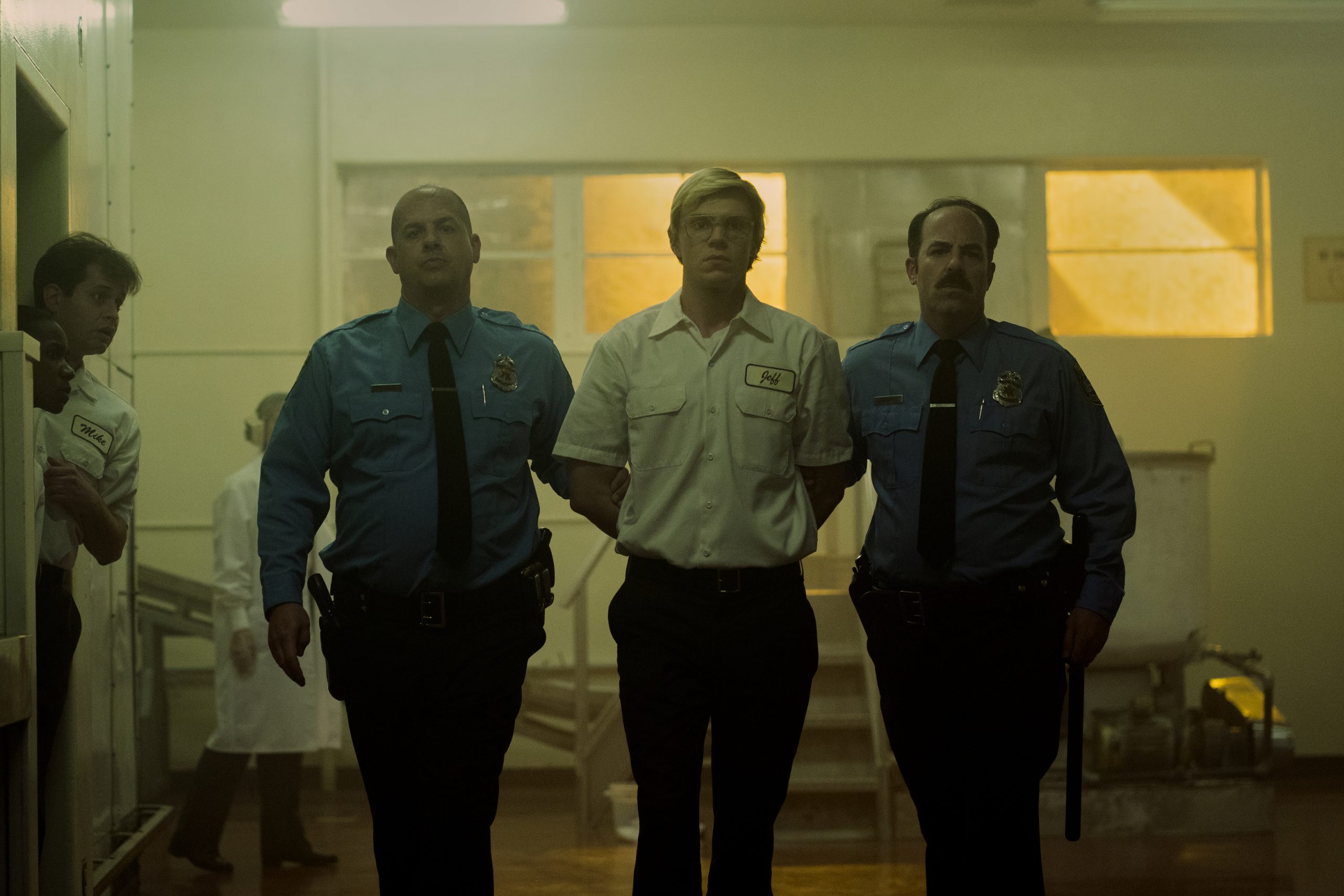Review: ‘Monster: The Jeffery Dahmer Story’ offers controversial depiction of infamous serial killer
Review: 'Monster: The Jeffery Dahmer Story'

Yet another serial killer drama hits the scene—and many viewers are over it.
In an attempt to create an entertaining yet moral series about the notorious murderer Jeffrey Dahmer, creator Ryan Murphy still manages to cause conflict. Monster: The Jeffrey Dahmer Story is the most recent addition in a series of media adaptations about the killer, and audiences have mixed reactions. The show focuses on the victims and the insufficient police effort that contributed to Dahmer’s series of murders.
Jeffrey Dahmer was an infamous serial killer, sex offender, cannibal and necrophiliac. He murdered and dismembered 17 boys and men between the years 1978 and 1991 in Milwaukee, Wisconsin. Dahmer was eventually arrested, convicted of 16 murders and sentenced to life in prison, where he was killed by another inmate in 1994.
Despite the widespread controversy, not all viewers are upset about the series. Twitter user Mick McHugh shared praise for the show in a recent tweet:
Absolutely stunned by how good Dahmer on Netflix is. Up there with the best TV I've seen. A compelling story which brilliantly balances the horror of the murders, the ineptitude of authority and the humanity of the victims. It's portrayal of Dahmer is layered and complex.
— Mick McHugh (@onedeswalker) October 6, 2022
For many, this series is the first time they truly knew the victims’ names and their stories. These stories are kept alive through the media and never forgotten.
Viewers also bring up that the series, though named after him, is not just about Dahmer. Monster: The Jeffrey Dahmer Story sheds light on institutionalized racism, homophobia and poverty in the 1980s-1990s. It makes statements about prejudice towards the Black community, and it depicts time and time again how the police ignored them and their concerns. The series focuses on how the police force in Milwaukee failed the victims and how institutionalized prejudice clouded their vision, allowing Dahmer’s actions to continue. Rotten Tomatoes critic Paula Vázquez Prieto agreed, saying:
“Dahmer showcases a possible reversal, brutal and chaotic, in which the crimes are as inexplicable as the systemic failures that facilitated their emergence,” Vázquez Prieto said in a Rotten Tomatoes review.
Throughout the series, there are many instances in which the police’s inaction causes more death and trauma. In one episode, we see a 14-year-old victim with a hole drilled in his head escape Dahmer’s apartment. The victim, Konerak Sinthasomphone, runs to the street where three black women notice him and call the police for help. The police arrive, but so does Dahmer. Dahmer claims that Konerak is his drunk boyfriend and that they were just messing around. Despite the women’s protests, the police release the boy back to Dahmer, who murders him.
Soon after Dahmer’s conviction, the two officers, John Balcerzak and Joseph Gabrish were fired from the police force. But in 1994, the officers were reinstated, and Balcerzak eventually became head of the Milwaukee Police Association.
While the show sticks to the facts and does a fine job avoiding the glorification of Dahmer, it’s still shocking and disturbing to the families of the victims. In a Twitter statement, Eric Perry, cousin of Dahmer’s victim Errol Lindsey, spoke on behalf of his family:
I’m not telling anyone what to watch, I know true crime media is huge rn, but if you’re actually curious about the victims, my family (the Isbell’s) are pissed about this show. It’s retraumatizing over and over again, and for what? How many movies/shows/documentaries do we need? https://t.co/CRQjXWAvjx
— eric perry. (@ericthulhu) September 22, 2022
Perry also said that the families were not notified of the series, since most of the information is public record.
So when they say they’re doing this “with respect to the victims” or “honoring the dignity of the families”, no one contacts them. My cousins wake up every few months at this point with a bunch of calls and messages and they know there’s another Dahmer show. It’s cruel.
— eric perry. (@ericthulhu) September 23, 2022
Even if producers work hard to create an ethical series, the inherent concept of using trauma as entertainment is harmful. It opens old wounds for the families and gives Dahmer fame he does not deserve. Drama series like these turn Dahmer into an icon. Additionally, the victims are not compensated or even aware that another show is being made. Hollywood continues to profit from suffering, and for many, this is a story that does not need retelling.

Monster: The Jeffrey Dahmer Story highlights key aspects of the cases that have been ignored for years, like the prejudice that affected the police investigation. The series does not make Dahmer a victim of any kind, and it does not make the viewers sympathize with him.
With that said, there is still an inherent issue with continuing to create and profit from stories about horrifying crime cases such as this. Dramatic TV shows, movies and books only help immortalize and create a celebrity out of someone who should simply be known as a murderer. Victims and their families have repeatedly come forward calling for change within the true crime community, and yet Hollywood still ignores them. It is time their voices are heard, and the continuous production of entertainment based on trauma ends.





